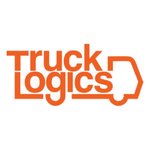Yes, most trucking software nowadays is cross-platform compatible, meaning it can be accessed from a variety of platforms, including PCs, laptops, tablets, and smartphones. This implies that users can follow and control their transportation operations while on the go, no matter what device or operating system they prefer. However, before purchase, you should check with the software source to ensure compatibility with your devices and platforms.
List of 20 Best Trucking Software
LogyTrak is a Transportation Management Software for real-time tracking of logistics, consignments, assets, and vehicle locations. Our advanced technology allows for seamless monitoring and management of transportation operations, leading to streamli...Read More LogyTrak
LoadMaster Load Balancer is a choice for world-class availability, security, and performance of critical applications. Renowned for its dependable performance, this cutting-edge solution simplifies setup and management, offering advanced features lik...Read More LoadMaster Load Balancer
Fullbay is a software solution built for heavy-duty truck and trailer repair shops. It streamlines operations with features like service order management, inventory tracking, and effortless payment reconciliation. By utilizing Fullbay, businesses can...Read More Fullbay
Descartes Route Planner On-demand solution for businesses looking to optimize fleet and mobile resource efficiency. With its advanced features, this powerful software helps enhance service levels, reduce costs, and increase productivity. Seamlessly m...Read More Descartes
PC*MILER is the leading commercial routing and mileage software designed to optimize fleet operations and reduce costs for businesses. Used by industries worldwide, it provides precise routing, scheduling, and navigation specifically tailored for com...Read More PC*MILER
Route4Me is route planning software built for both enterprises and small businesses. Utilizing global mapping data, users can effortlessly generate, share, and organize optimized vehicle routes. Featuring advanced functionality, Route4Me facilitates...Read More Route4Me
Dauber App solution for agile project management. This powerful app offers a robust task monitoring system, real-time collaboration features, and comprehensive data analysis, empowering teams to optimize productivity, meet project objectives, and str...Read More Dauber App
TruckSmartz is a top-performing driver management software designed to efficiently manage your fleet. With its real-time data and visibility features, TruckSmartz streamlines fleet management for a smooth and successful operation. With this powerful...Read More TruckSmartz
Fleet Complete, a fleet management software that transforms operations, enhances safety, and ensures regulatory compliance for businesses across various industries. Powered by AI technology, real-time data, and customizable features, this solution en...Read More Fleet Complete
MyGeotab is a web-based Fleet Management Software designed for Agencies and SMEs. It offers a wide range of features, including Fuel Management, Routing, Scheduling, Tire Management, and Maintenance Management, making it a one-stop solution for all y...Read More MyGeotab
Experience unparalleled efficiency, safety, and sustainability with EROAD is a fleet management software. Gain real-time insights and streamline processes for optimal performance and complete control. Take advantage of advanced technology to elevate...Read More EROAD
Transport Pro is a TMS software for small and medium-sized logistics and trucking companies. Our robust features ensure streamlined and secure shipment deliveries, allowing you to effortlessly track your vehicles every step of the journey. Count on T...Read More Transport Pro
ConnectTrak - an innovative software designed to streamline asset management for businesses of any size. With real-time tracking and comprehensive analytics, ConnectTrak offers a user-friendly platform for efficient fleet monitoring, leading to incre...Read More ConnectTrak
DAT Load Board is a online platform designed for the trucking industry to efficiently connect freight shippers, brokers, and carriers. This intuitive solution serves as a virtual marketplace where individuals can effortlessly post, search, and book l...Read More DAT Load Board
Avaal Freight Management (AFM) Suite is a web-based solution for Carriers, Freight Brokers, and Freight Forwarders. Streamline and manage your operations with essential modules like Dispatching, Accounting, and Safety & Compliance. With AFM Suite, ex...Read More Avaal Freight Management (AFM) Software
AscendTMS is a transportation management software designed to streamline your logistics operations. With advanced features such as real-time tracking, automated invoicing, and seamless integration, it optimizes your supply chain and reduces costs. Th...Read More AscendTMS
Rose Rocket is a transportation management software that streamlines logistics operations. With real-time tracking, seamless communication, and robust data analysis, Rose Rocket empowers businesses to enhance efficiency, reduce costs, and provide top...Read More Rose Rocket
Dossier - the complete fleet management solution designed to boost productivity, ensure regulatory compliance, and save costs. This comprehensive software offers real-time asset tracking, automated scheduling for preventive maintenance, and effortles...Read More Dossier
TruckLogics is a trucking software solution for your business. Say goodbye to manual processes and hello to streamlined operations with features for dispatch, accounting, and compliance. Enhance your competitiveness and profitability in the trucking...Read More TruckLogics
TruckingOffice is an affordable and user-friendly software designed for owner operators and fleet managers to efficiently manage their daily operations and comply with regulations. It seamlessly integrates with ELDs, providing real-time data and simp...Read More TruckingOffice
Learn More About Trucking Software
- What Is Trucking Software?
- What Are The Recent Trends In Trucking Software?
- Benefits Of Using Trucking Software
- Important Factors To Consider While Purchasing Trucking Software?
- What Are The Key Features To Look For In Trucking Software?
- Why Do Businesses Need Trucking Software?
- How Much Time Is Required To Implement Trucking Software?
- What Is The Level Of Customization Available In Trucking Software?
- Which Industries Can Benefit The Most From Trucking Software?
- Conclusion
What Is Trucking Software?
Trucking software, often known as transportation management software, is a type of technology that allows businesses to manage and streamline their trucking operations. It was created exclusively for the trucking sector to increase efficiency, lower expenses, and optimize profits. Trucking software has several major capabilities, including route planning and optimization, load scheduling, dispatching, and vehicle and delivery tracking.
It also has features like as load matching, load tracking, and real-time communication between drivers and dispatchers. One of the primary advantages of adopting trucking software is that it automates many manual procedures, saving time and lowering the likelihood of human error. Companies can use this software to easily manage their logistics, create and track load bills, and generate reports for operational analysis purposes.
Furthermore, trucking software includes capabilities like load optimization, which reduces empty miles and improves delivery route efficiency. It also interfaces with other systems like fuel management, accounting, and invoicing software, making it easier to handle the entire trucking process from one platform. There are different types of trucking software on the market, ranging from simple systems for small carriers to full solutions for large trucking corporations.
Some software also provides mobile applications for drivers, which allow them to access data and connect with dispatchers while on the go. In addition to increasing overall efficiency, trucking software aids in the compliance with industry norms and standards. It may monitor driver hours, fuel use, and vehicle maintenance, ensuring that businesses comply with legal standards.
Investing in trucking software can provide various benefits to a trucking firm, including increased efficiency, better customer service, and higher profits. With the ever-increasing demand for fast and dependable transportation, trucking software has become an essential tool for businesses trying to thrive and prosper in the competitive trucking market.
What Are The Recent Trends In Trucking Software?
As technology advances, transportation software development has increased significantly. This sort of software is intended to streamline operations and improve efficiency for trucking companies. In recent years, numerous significant changes in trucking software have evolved and transformed the business.
1. Real-Time Tracking And Visibility: One of the most important developments in trucking software is the ability to track and monitor trucks in real time. Trucking businesses now have total visibility into the position, speed, and route of their fleets thanks to GPS tracking and telematics technologies. This not only improves operating efficiency, but also enables improved customer communication and more precise delivery estimates.
2. Cloud-Based Solutions: Cloud-based software is gaining prevalent in the trucking business. This form of software enables quick access from any device with an internet connection, removing the need for on-premise servers and hardware. Cloud-based trucking software also provides automatic updates and data backups, making it a more efficient and cost-effective alternative for businesses of any size.
3. Integration Of Electronic Logging Devices (ELDs): The implementation of ELDs has transformed the trucking business, and several trucking software suppliers have included this technology into their products. ELDs track and record truck drivers' hours of service, ensuring that they comply with federal rules. By integrating ELDs with transportation software, businesses can automate HOS tracking and reduce the risk of infractions.
4. Data Analytics: Trucking software has grown from basic tracking and management tools to sophisticated platforms with data analytics capabilities. These technologies can gather and analyze massive amounts of data, providing valuable insights into driver performance, route optimization, and fuel efficiency. This information enables transportation companies to make data-driven decisions and improve their overall operations.
5. Mobile Applications: Mobile technology has become an integral part of the trucking business, and trucking software providers have taken notice. Many organizations now provide mobile applications for drivers, allowing them to access critical information such as delivery schedules, route adjustments, and real-time tracking. This enhances communication and efficiency by allowing drivers to stay connected while driving.
Benefits Of Using Trucking Software
Trucking software has quickly become an essential tool for trucking enterprises of all sizes. It is intended to streamline operations, increase efficiency, and boost overall performance. Whether you are a small business owner or a major fleet operator, investing in trucking software can provide numerous benefits to your firm.
Let's take a deeper look at the main advantages of using trucking software:
1. Improved Fleet Management: One of the most significant advantages of trucking software is that it provides a consolidated platform for controlling your whole fleet. Everything, from dispatching and tracking to driver communication and vehicle maintenance, can be done easily with the software. This not only saves time, but also lowers the likelihood of human error.
2. Real-Time Tracking: Trucking software allows you to quickly track your cars' exact location in real time. This not only increases the speed of your dispatching process, but also allows you to provide accurate anticipated delivery timeframes to your consumers. Furthermore, real-time tracking enables you to swiftly respond to any roadside delays or accidents, assuring speedy and effective resolution.
3. Cost Savings: By optimizing routes, minimizing empty miles, and avoiding unnecessary fuel expenditures, trucking software can save you a lot of money over time. It also removes the need for manual paperwork and minimizes paperwork-related errors, saving you time and money on administrative activities.
4. Increased Efficiency: Trucking software automates several manual processes, making your operations more efficient. It streamlines dispatching, invoicing, and billing, lowering the time and effort required to complete these operations. It also offers real-time data and analytics, enabling you to make more informed decisions and improve overall productivity.
5. Improved Customer Service: Trucking software allows you to give better customer service by increasing communication and openness. You may give your consumers a smoother, more reliable experience by providing real-time information on delivery status and accurate ETAs. This can help to increase client loyalty and obtain a competitive advantage in the market.
6. Regulation Compliance: The use of electronic logging devices (ELDs) in trucking software assures compliance with Hours of Service (HOS) rules. It also helps with IFTA reporting, lowering the possibility of fines and penalties for non-compliance.
Important Factors To Consider While Purchasing Trucking Software?
When selecting trucking software for your business, it is critical to consider a few key elements to ensure that you are making the best option for your organization.
Here are the key elements to consider while selecting trucking software:
1. Cost: The price of trucking software varies significantly depending on the features and capabilities it provides. It is critical to establish your budget and examine several software solutions to discover which one provides the best value for money.
2. Features And Functionality: Create a list of the features and functionality that are essential to your business operations. This will help to limit down your selections and guarantee that the software you select fulfills your specific requirements.
3. Usability: Trucking software should be intuitive and simple to use for both you and your personnel. Consider demo versions or free trials to test the usability of the product before making a purchase.
4. Integration Capabilities: If you already use other software or tools in your business, you should ensure that the trucking software can integrate with those. This will help to streamline your procedures and improve efficiency.
5. Customer Support: Think about the level of support provided by the software supplier. Look for features like 24-hour support, online tutorials, and a dedicated support team to help with any problems that may arise.
6. Mobile Compatibility: Given the growing popularity of mobile devices, it is critical to select trucking software that is compatible with smartphones and tablets. This will enable you and your workers to use the program on the go.
7. Security: Trucking software protects sensitive information such as client data, financial records, and personnel information. Make sure the program has sufficient security mechanisms in place to keep your data safe from cyber attacks.
8. Customization Options: Because your company's operations and needs may vary over time, you should select trucking software that allows for customization to accommodate these changes.
9. Reputation And Reviews: Conduct research and study feedback from other companies that have used the program. This will allow you to gain insight into their experiences and make an informed conclusion.
What Are The Key Features To Look For In Trucking Software?
When searching for trucking software, there are a few crucial elements to consider to guarantee you're making the best investment for your company. These features will not only help to streamline business processes, but will also increase efficiency and lower expenses.
The following are some of the most crucial characteristics to look for in trucking software:
1. Dispatch And Routing: One of the primary purposes of trucking software is to assist with dispatch and routing. Look for software that provides real-time fleet tracking, optimizes routes for fuel efficiency, and enables effective communication with drivers.
2. Fleet Management: A decent trucking software should provide powerful fleet management features. This provides capabilities like car maintenance tracking, fuel economy monitoring, and driver performance tracking. These features can help to reduce downtime and improve the overall operation of your fleet.
3. Load Management: Another critical element is load management, which involves load planning, optimization, and tracking. This will help you keep your trucks functioning at full capacity and maximize your income.
4. Accounting And Invoicing: Look for software that connects with your accounting systems and includes invoicing features. This will help you simplify your billing procedure and have a better understanding of your finances.
5. Compliance: Trucking companies must follow a variety of rules, including hours of service and safety requirements. Look for software that aids in compliance tracking and reporting to prevent penalties or fines.
6. Integration: Your transportation software must work with any third-party systems you employ, such as fuel cards, ELDs, and weather tracking applications. This will help to streamline your processes and remove human data entry.
7. Mobile Access: With the growing usage of mobile devices in the trucking business, it is critical to have software that supports mobile access. This will enable drivers to get critical information on the fly and aid in real-time communication.
8. Customer Service: Last but not least, make sure to select a software vendor with dependable customer service. This will ensure that you receive support and assistance if you have any problems with the product.
Why Do Businesses Need Trucking Software?
Trucking firms are continually challenged to manage and track their vehicles, drivers, and goods effectively and correctly. This can be a difficult undertaking for organizations, particularly as the industry grows more competitive and demanding. Here's where trucking software comes in. This software is specifically intended for the trucking sector and provides a comprehensive solution for firms looking to streamline and optimize their operations. But what precisely makes it such a valuable tool for businesses?
Here are the top reasons why investing in trucking software is critical for any trucking company.
1. Improved Fleet Management: One of the primary objectives of trucking software is to assist firms successfully manage their fleet. Businesses may have comprehensive visibility and control over their whole fleet by utilizing capabilities such as real-time tracking, route optimization, and vehicle maintenance scheduling. This leads to increased efficiency, lower expenses, and a more structured and streamlined business.
2. Improved Dispatching And Logistics: With the increasing need for on-time deliveries, dispatching and logistics are vital to the profitability of a trucking business. Trucking software helps to automate this process, making it more efficient and accurate. Businesses may plan and schedule shipments, allocate drivers and vehicles, and track the status of each delivery using a single centralized platform.
3. Improved Compliance And Safety: The trucking sector is extensively regulated, with several compliance requirements to guarantee the safety of drivers, vehicles, and cargo. Trucking software helps firms stay compliant by including features such as driver log auditing, electronic logging devices, and safety reporting systems. This not only assures everyone's safety, but also prevents hefty penalties for noncompliance.
4. Improved Customer Experience: To keep and attract new customers in the competitive trucking industry, firms must differentiate themselves and provide great customer service. Trucking software can aid by offering real-time updates and insight into shipments, interactive customer portals for tracking and managing orders, and customisable reporting to meet unique client requirements. These elements not only enhance the overall client experience, but also aid in the formation of long-term partnerships.
5. Data-Driven Decision-Making: Trucking software is packed with powerful reporting and analytics tools that provide critical insights into corporate operations. Businesses may access real-time data on driver performance, fuel consumption, and route efficiency to make educated decisions, discover areas for development, and optimize their operations for optimum efficiency and profitability.
How Much Time Is Required To Implement Trucking Software?
The time required to develop trucking software varies depending on criteria such as software type, operational complexity, and fleet size. On average, it can take anywhere from a few weeks to several months to fully integrate trucking software and train your workforce on its features.
The first step in installing trucking software is to evaluate your existing operations and find areas that could benefit from automation. This phase can take a few weeks to complete because it entails determining your business needs, setting your goals, and selecting the best software solution. Following the selection of software, the following stage is to adapt it to meet your specific business needs.
This can take a long time because it requires customizing the software, connecting it with your existing systems, and teaching your personnel on how to use it properly. Once the program has been modified and integrated, the last step is to test and debug any issues that may develop. This can take several weeks to complete because it is critical to guarantee that the software works properly and meets your company's needs.
Overall, the deployment process for trucking software can take 4-8 weeks for smaller businesses, while bigger fleets may need up to 6 months for a full rollout. It is important to remember that the time necessary for implementation can vary depending on your team's level of collaboration and involvement throughout the process.
What Is The Level Of Customization Available In Trucking Software?
transportation software has become a crucial tool for transportation companies of all kinds in optimizing and controlling their operations. One of the primary differences between trucking software is the level of customization available. Customization possibilities enable businesses to adjust software to their specific needs and operations, making it an important factor for buyers. The level of customisation possible in trucking software varies widely, depending on the provider and the business's specific requirements. Some software may have limited customization choices, but others allow a great deal of flexibility and adaptability.
In general, trucking software allows for customization in three areas: the user interface, features, and integrations.
1. User Interface: One of the most apparent components of customisation is the user interface, also known as the program layout and design. It allows users to add and delete modules, configure the dashboard, and alter settings to their liking. Some software may also allow you to adjust the colors and add the company's emblem, making it more personalized.
2. Functions: Trucking software often includes a number of functions for managing various elements of the business, such as dispatch, load tracking, billing, and so on. The level of customisation in features can vary, with some software allowing organizations to select or delete functions based on their requirements. Others may allow you to personalize specific features by adding fields, producing custom reports, or altering user rights.
3. Integrations: The trucking sector is increasingly relying on integrations with other software and solutions. Trucking software may include several integration possibilities, such as accounting software, fuel cards, and electronic logging devices (ELDs). The level of flexibility in connectors varies, with some products giving ready-made integrations and others providing API access for organizations to construct their own integrations.
Which Industries Can Benefit The Most From Trucking Software?
Trucking software is a strong tool that may greatly streamline and enhance operations for businesses across multiple industries. This program offers a full answer to the trucking industry's particular difficulties, including fleet management, dispatching, and route planning. However, not all industries will gain equally from transportation software.
Let's explore, we'll go over which sectors can benefit the most from trucking software, as well as the precise features that are required for each.
1. Transportation & Logistics Industry: Without a doubt, trucking software benefits the transportation and logistics industry the most. To remain competitive, trucking companies must stay on top of their operations as the demand for efficient products delivery grows. Trucking software can assist streamline dispatching, track shipments in real time, and optimize routes to assure on-time delivery. Companies in this field rely heavily on features such as load planning, GPS tracking, and electronic proof of delivery.
2. Manufacturing Industry: The manufacturing industry relies largely on timely delivery of raw materials and final goods to keep production operations running properly. It is critical for industrial organizations to have dependable trucking software that helps streamline supply chain operations. Advanced features such as freight auditing and invoicing, inventory management, and electronic data interchange (EDI) can greatly benefit organizations in this area.
3. E-commerce Industry: The e-commerce industry has grown tremendously in recent years, with an increasing number of enterprises migrating to online sales. For these businesses, on-time and efficient delivery is critical to client happiness and retention. Trucking software can assist with order fulfillment, automate freight tracking, and offer consumers with real-time delivery information. Integration with e-commerce platforms and data analytics functionalities are critical for e-commerce companies seeking insights into their delivery operations.
4. Retail Industry: Retail operations, whether brick-and-mortar or online, need a consistent supply of inventory to meet client demand. Trucking software can assist retailers in developing and implementing efficient transportation strategies, whether for distribution centers, warehouses, or storefronts. Load optimization, dynamic routing, and inventory visibility are critical features for retail organizations to properly manage their supply chain.
5. Construction Industry: The construction industry is strongly reliant on the timely supply of materials and equipment to job sites. Delays in delivery caused by traffic or faulty routing can derail entire construction projects, resulting in costly delays. Trucking software can assist construction organizations in planning the most effective delivery routes, tracking deliveries, and providing real-time status updates to ensure projects stay on schedule.
Conclusion
Finally, investing in trucking software can have a wide range of benefits for your firm. The appropriate software can significantly improve your bottom line by streamlining operations, increasing efficiency, assuring compliance, and improving customer happiness. As you look for trucking software, bear in mind the important variables to examine, such as your specific business requirements, budget, and integration capabilities.
To guarantee you're making an informed decision, conduct extensive research on potential software suppliers and read reviews from other trucking companies. Finally, selecting the appropriate trucking software will not only save you time and money, but will also position your company for long-term success in a competitive sector. So, take your time researching and making sensible decisions, and watch as contemporary technology propels your trucking business to new heights. Thank you for reading our buyer's guide, and best of luck with your software quest.
Trucking Software FAQ's
Can Trucking Software Be Accessed Across Multiple Devices And Platforms?
Is Trucking Software Future-Proof And Adaptable To Emerging Technologies Like AI, Blockchain Or IoT?
Absolutely! Trucking software is continually improving to meet the industry's changing needs, using the latest technologies. Most modern trucking software solutions have AI capabilities, which improve route planning and load optimizatio.
Furthermore, several software companies have already integrated blockchain and IoT technology into their systems to improve security and real-time tracking. Trucking software is future-proof, as it can adapt to developing technology and will continue to streamline industry operations.
Is There A Free Trial Offered To Assess Trucking Software Before Committing?
In general, most trucking software vendors offer a free trial period for potential customers to evaluate their software before making a purchase. Users can examine the software's features and functionalities to see if it fulfills their specific requirements. It is best to take advantage of free trials to check that the software is a good fit for your company and operations before making a purchase.
Does Trucking Software Offer Data Security Features And Meet Regulatory Compliance Standards?
Yes, trucking software includes advanced data security measures that secure sensitive information and ensure regulatory compliance. This includes features like encryption, safe user authentication, and scheduled data backups.
Furthermore, trucking software is designed to comply with industry standards such as the Electronic Logging Device (ELD) mandate and Hours of Service (HOS) rules, ensuring compliance and avoiding penalties. Rest assured that your data is safe and secure with trucking software.
Can Trucking Software Integrate Seamlessly With Existing Tools And Platforms?
Yes, most trucking software is designed to work easily with existing tools and platforms. Trucking software may readily connect to other systems like as accounting software, dispatching tools, and electronic logging devices via APIs and data integration.
This enables for a more streamlined and effective workflow because data can be readily shared between systems without requiring manual entry. Furthermore, trucking software usually includes customization options to adjust the integration to the specific needs of the trucking company.

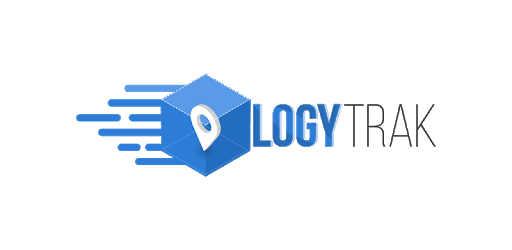
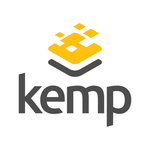





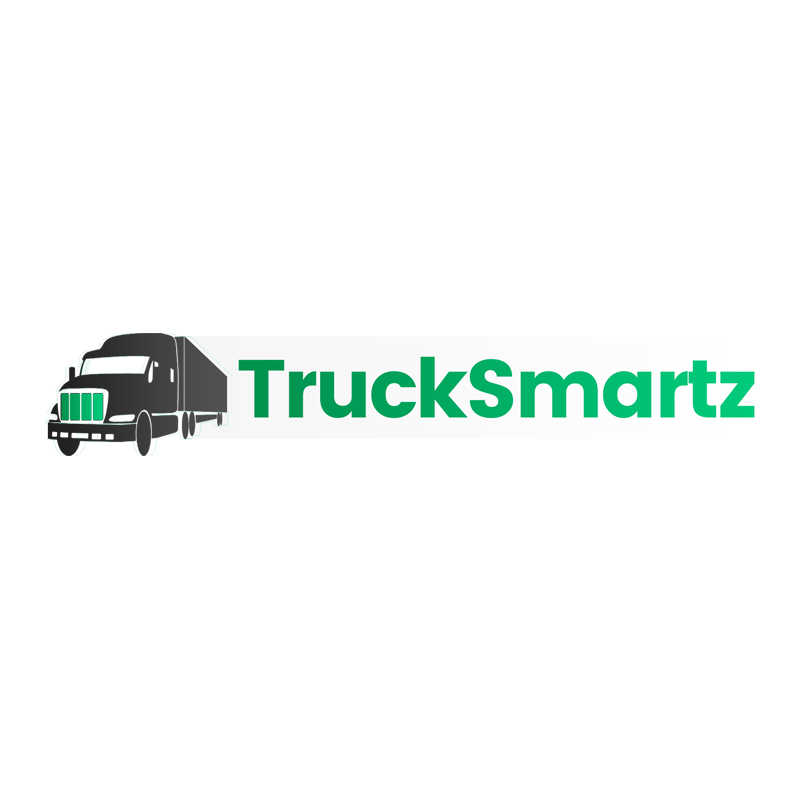


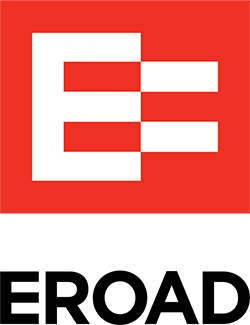


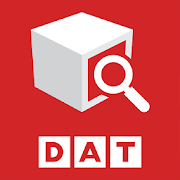
-software-logo.jpg)



